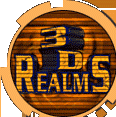Play Duke Nukem. Don't be depressed
Thanks to the many people who emailed us to say that there's an article out at the "New Scientist Tech" website which says that if play a game such as Duke Nukem, then it makes it easier for them to diagnose depression. It's an interesting theory, you should check out the full article to read it.
While the article doesn't specifically mention which Duke Nukem game, we assume it's Duke Nukem 3D. But since they didn't specify, we suggest you buy and play all 18 or so Duke Nukem games, and then you'll be the happiest person on the planet! :)
A personal remark from your news reporter: This is the kind of positive article that the general press needs to focus on, not how many kids get shot at a McDonald's. It's unfortunate that these kinds of "good video game articles" get ignored by the mass press.
Continue with the article to read the full article text, which originally appeared here.
A popular video game could provide doctors with a way of diagnosing depression.
With some illnesses, such as diabetes, a simple test can usually quantify how severe a person's condition is, but depression is more complicated. The condition has been linked to a shrunken hippocampus, a part of the brain that also plays a role in spatial memory, so Neda Gould at the US National Institute of Mental Health in Bethesda, Maryland, and her colleagues wondered whether a video game that tests spatial memory could help measure the severity of the illness.
To test their idea the researchers developed a game based on some scenes from Duke Nukem, a game in which players navigate around a virtual town. The participants, who were already familiar with the town, were asked to find their way to as many landmarks as possible within a set amount of time.
Depressed people found their way to an average of 2.4 locations compared with 3.8 locations for healthy controls. Indeed, the more depressed a person was, the lower the score (The American Journal of Psychiatry, vol 164, p 516). Gould hopes the test may eventually provide a quantifiable measure of depression.
Posted by Joe Siegler at 12:46 PM
| Discuss this story on our forums













